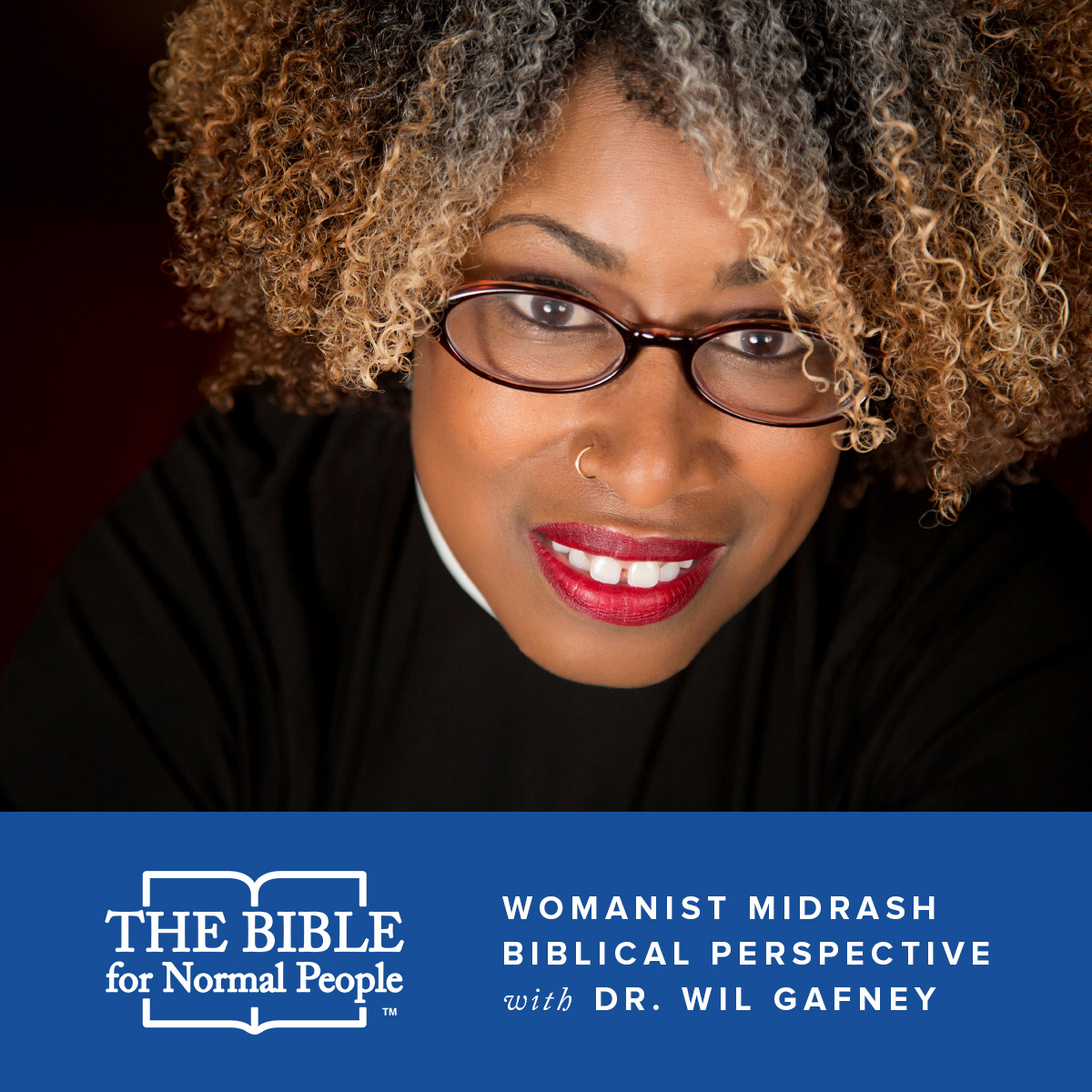In this episode of The Bible for Normal People Podcast, Pete and Jared revisit their conversation with Dr. Wil Gafney, scholar and professor at Brite Divinity School. They talk about the value of reading the Bible from womanist perspectives and how we can be more responsible in our interpretations as they explore the following questions:
- What is womanist biblical interpretation?
- Why is womanist interpretation important for everyone?
- What is the difference between classical Jewish Midrash and Womanist Midrash?
- What’s the difference between womanism and feminism?
- How has Bible translation been used to harm certain communities throughout history?
- How is translation both an art and a science?
- How has Church history affected the way we view gender?
- How can we be respectful of other traditions that do not speak the Divine name?
- Who are Bilhah, Zilphah, and Rizpah?
- Why is it important to name slavery as slavery in the Bible?
- What are the implications of the Bible endorsing slavery and even God endorsing slavery in the Bible?
- How can we practice reading the Bible more critically?
Tweetables
Pithy, shareable, less-than-280-character statements from Wil Gafney you can share.
- “Everyone interprets everything they see, hear, and read, and we all interpret through who we are, and what we know.” @WilGafney
- “[Womanism] asks what does it mean to read, see, and hear this text through the life and experience of a black woman.” @WilGafney
- “One of the principles of womanist biblical interpretation is that that experience is not just useful for black women, it’s useful for anyone who engages the text.” @WilGafney
- “We must attend to two sets of contexts: the ancient context which are the originating contexts of the text… and our context, the context in which we are right now engaging these texts and the context in which we may write or teach or preach.”
- “When we approach a text, even a sacred text, we bring stuff with us.” @WilGafney
- “God uses the language of plurality which signifies that we should not try to reduce God to any one thing.” @WilGafney
Mentioned in This Episode
- Website: Wil Gafney
- Twitter: @WilGafney
- Book: Womanist Midrash
- Book: The Peoples’ Bible
- Book: The Peoples’ Companion to the Bible
- Support: The Bible for Normal People

